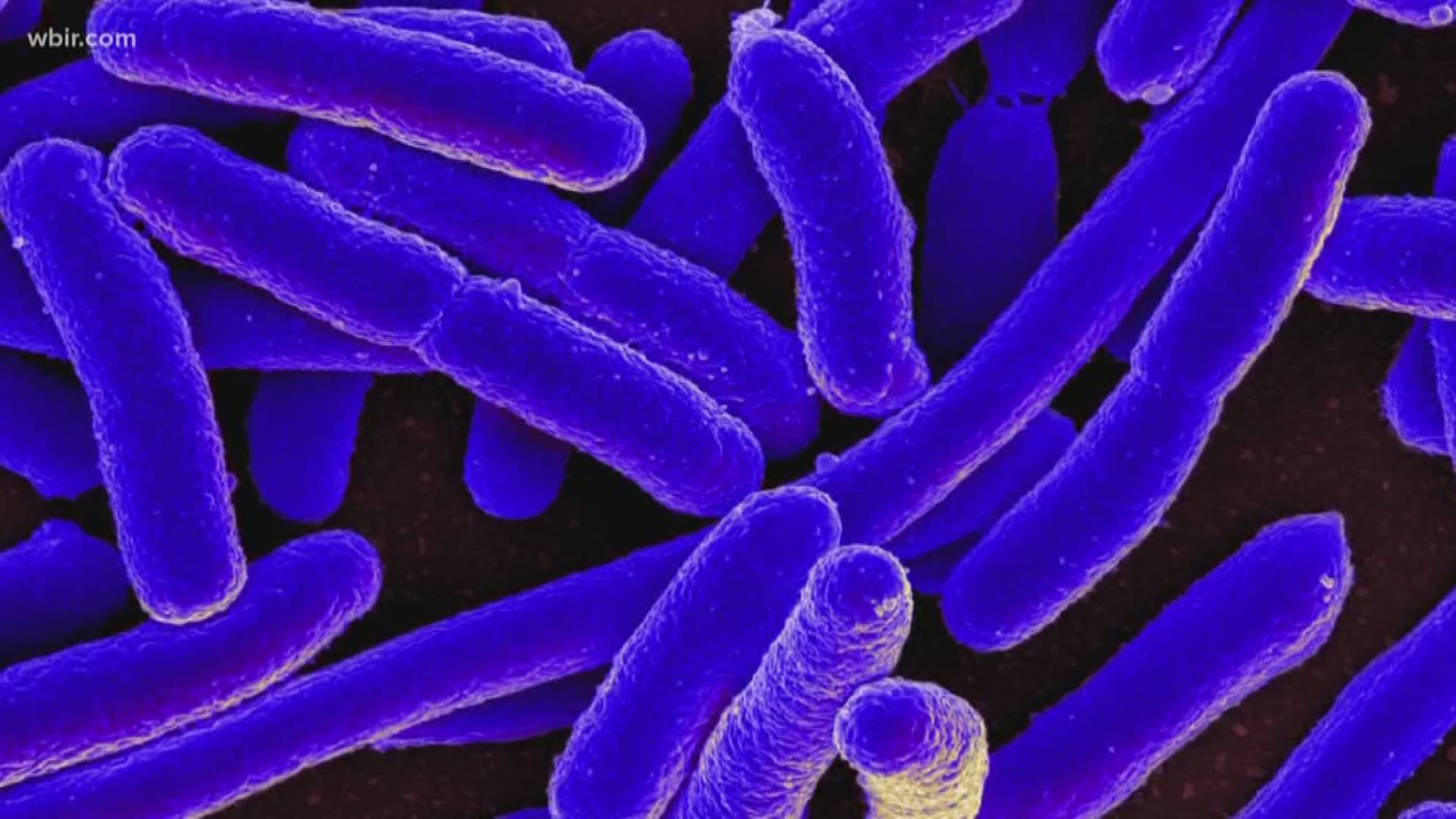UPDATE: The Knox County Health Department issued an E. coli alert Tuesday as it investigates a cluster of cases in children likely associated with consumption of raw milk and contact with farm animals.
The East Tennessee Children's Hospital said it's seen nearly 10 kids under the age of four test positive for E. coli in the past week and a half.
Most of the children consumed raw milk from a local cow-share dairy, according to KCHD. Due to possible contamination with E. coli 0157 and out of an abundance of caution, the health department advises the public not to consume raw milk or any other unpasteurized products from French Broad Farm in Knoxville, Tennessee.
“Bacteria, like E. coli, cannot be seen with the naked eye,” said KCHD Director Dr. Martha Buchanan. “For some perspective, roughly 1,800 can fit on the head of a pin, and it only takes about 10 to make you sick."
KCHD said the facility is not currently operating to prevent further exposure to the farm animals in question.
East Tennessee Children's hospital is advising people of any age not to drink raw milk period, citing immediate health risks with the lack of pasteurization that eliminates dangerous pathogens like E. coli, Listeria and M. tuberculosis.
ORIGINAL STORY:
Four children are in Intensive Care at the East Tennessee Children's Hospital following an E. coli outbreak that has affected "several children."
East Tennessee Children's Hospital Chief Medical Officer Dr. Joe Childs said the children are in serious condition and on dialysis due to E. coli infections that are affecting their kidney function, which began about four days ago in the ICU.
Childs said 'several children' have been treated for infections starting about 10 days ago, saying this is the largest outbreak he's seen in his career so far for E. coli.
"We'll see sporadic cases, maybe 2, 3 at a time, but this is way more than I've ever experienced before here," said Childs.
Children's hospital said it's not uncommon to see sporadic cases in the warmer months when there's more risk of exposure to animals and foods that tend to come in contact with E. coli.
Childs said there are various reasons children get infected with E. coli -- which is often contracted from coming in contact with food contaminated with pathogens primarily found in cattle and wildlife feces, particularly unwashed leafy vegetables and uncooked hamburger. Other reasons are touching and petting animals and not washing their hands well after coming in contact with fecal matter, as well as drinking raw unpasteurized milk.
Swimming in or drinking untreated water sources such as ponds and lakes can also pose risks for E. coli.
He said children are more prone to serious infections because their immune systems aren't as developed, so frequent hand washing and proper food preparation is a must for prevention.
The Knox County Health Department said it is also looking into 'several cases' of E.coli reported in the area.
Katharine Killen with KCHD said she couldn't give exact number of cases at the moment, saying it is a 'fluid situation.'
The KCHD hasn't said if there is a common link between the E.coli cases yet, saying it's localized in the county and occurring at the same time. County health officials are currently looking into possible connections.
People who get sick from E. coli come down with symptoms about three to four days after swallowing the germ, with many suffering diarrhea, severe stomach cramps and vomiting according to the CDC.
"If you have a child who's having several days of crampy watery diarrhea, and any time you see blood, you need to seek medical care," said Dr. Martha Buchanan, director of the Knox County Health Department.
Beginning in April, there has been a national E. coli outbreak that's hospitalized nearly 200 from tainted romaine lettuce grown in Yuma, Arizona. However, the growing season ended there weeks ago and it's unlikely the tainted lettuce was still in stores or in people's homes at the time of these infections given its short shelf life.
Childs said he's particularly concerned some of these cases have to do with the consumption of raw milk, which is milk directly from farm animals without going through the pasteurization process that removes pathogens -- including E. coli.
The consumption of raw milk is not approved or regulated by the Food and Drug Administration, so it's not sold inside stores. However, it is completely legal in Tennessee to sell raw milk straight from the cow to the jar so long as a dairy farmer does so through a cow share program.
Raw milk has seen growing support in recent years, and some farmers in East Tennessee say they believe it's a viable future as some distributors decided to cut dairy contracts.
However, in an article by the FDA titled "The Dangers of Raw Milk," officials warn that the milk can harbor dangerous microorganisms -- saying unpasteurized milk is 150 times more likely to cause foodborne illness and results in 13 times more hospitalizations than pasteurized milk.
In particular, it warns raw milk can be especially dangerous to people with weakened immune systems, older adults pregnant women and children.

